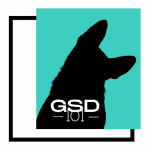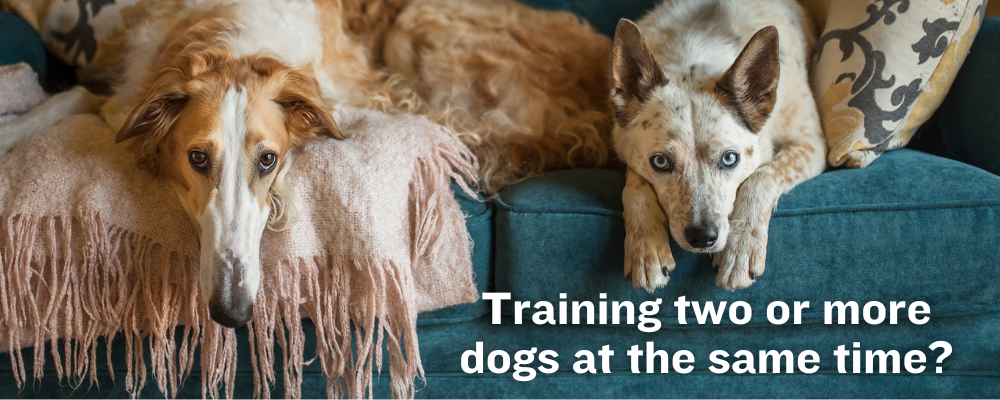Disclosure: This post contains affiliate links. We may earn a small commission if you decided to make a purchase, at no additional cost to you.
German Shepherds are a loyal, intelligent and active breed, and they require a special diet to stay strong and healthy. Unfortunately, not all dog foods are created equal, and some can actually be detrimental to your German Shepherd’s health.
Keep reading to find out what the worst dog food for German Shepherds is, and why it’s important to steer clear of it.
Ingredients to avoid while picking dog food for German Shepherds
From by-products and fillers to artificial preservatives and flavors, there are some dog foods that should be avoided if you want to keep your German Shepherd in peak condition. Knowing what to watch out for can help you make an informed decision when it comes to choosing the best food for your German Shepherd.
1. Fillers
Fillers are the poor quality, cheap and starchy ingredients that are used in several dog food brands to “fill up” the bag. These are the ingredients that could be replaced with higher quality and more biologically available ones.
When buying dog food for German Shepherds, look out for these common fillers. If you see them, walk away.
- Corncobs
- Feathers
- Soy
- Cottonseed hulls
- Peanut hulls
- Citrus pulp
- Screening
- Weeds
- Straw
- Cereal by-products
2. Artificial flavors and ingredients
Dogs rely more on smell than taste when making preferences in food. While natural flavors like fruits, certain herbs and spices, broth, fish oil, etc are safe for dogs, it is advisable to stray away from artificial flavors and synthetic ingredients.
Artificial flavoring to produce smoke and bacon flavors is fairly popular in some brands of treats. A few brands also incorporate liquid artificial meat flavors into their food and treats.
3. BHA and other artificial preservatives
While some amount of preservatives is necessary to keep the food fresh and increase its shelf life, it is the use of harmful, synthetic preservatives that is the issue. Natural substances like vitamin E (mixed tocopherols), vitamin C (ascorbic acid), and plant extracts (e.g., rosemary) to dry dog food can help prevent the fats from becoming rancid.
Unfortunately, natural preservatives are not as effective for long periods as artificial preservatives. Ethoxyquin, butylated hydroxyanisole (BHA) and butylated hydroxytoluene (BHT) are artificial preservatives that greatly improve a bag’s shelf life, but are also associated with health problems in dogs.
4. 4D Meats
4D meat refers to meat that is not slaughtered but found dead, dying, or diseased. These animals could also be down in the field in their litter. On your dog’s bag of food, Be on the lookout for words such as “inspected” — this does not necessarily mean “approved.”
Many 4D carcasses have cancerous tumors, worm-infested organs, and the like. In addition, eating 4D meats exposes your dog to denaturing agents, such as charcoal, fish meal, or chemical agents. These signify that the meat is of low quality and unfit for consumption.
5. Synthetic ingredients
Adding vitamins and minerals to dog food is a required component as per AAFCO standards. To meet these standards, many brands resort to creating these in the lab, rendering them ‘synthetic.’
Naturally occurring vitamins are made up of several different components – enzymes, co-enzymes, and co-factors – that must work together to produce their intended biological effects.
Synthetic vitamins possess only one component out of a whole family of micro-nutrients that would naturally accompany them in their pure state.
Worst human foods for German Shepherds
With the Holiday season upon us, keep your German Shepherd away from toxic ingredients like chocolates, grapes, onions, alcohol, chocolates, candies and sugary and salty snacks.
Some other poisonous foods that must be kept far out of your GSD’s reach include xylitol, yeast dough, coffee, avocado, cooked bones and fatty foods. We have put together a handy list of the top toxic human foods to avoid feeding your German Shepherd.
1. Chocolates
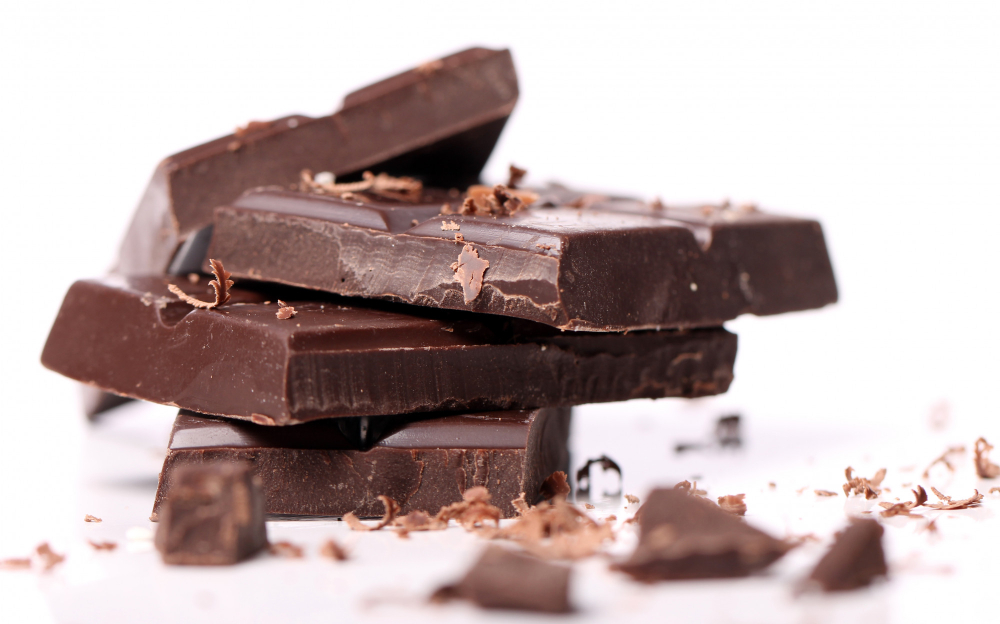
Chocolates are made of cocoa beans. Cocoa beans contain substances like theobromine and methylxanthines, which, if consumed can result in poisoning in dogs. Vomiting, diarrhea, a very fast heart rate, tremors and seizures are some of the reactions caused by chocolates in dogs.
2. Grapes and raisins
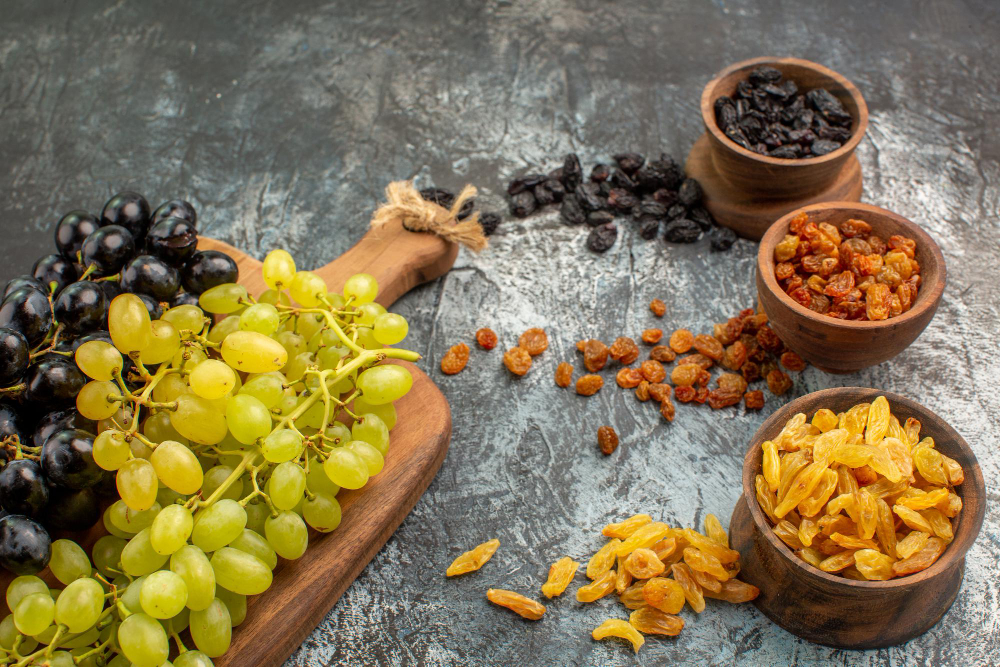
After 20 years of research, it has been recently discovered by the ASPCA Poison Control Center (APCC) veterinarians that the tartaric acid in grapes is what causes toxicity and gastrointestinal problems in dogs. Based on the type of grape, where it was grown, ripeness and content of tartaric acid in it, grapes and raisins have been known to cause instant vomiting, diarrhea, excessive thirst and kidney damage/failure in dogs.
3. Alcohol
Dogs, unlike humans, cannot metabolize alcohol. Do not be tempted to share even a sip of alcohol with your dog, no matter what. Alcohol poisoning may slip your dog into a coma or they may end up experiencing issues with their central nervous system.
4. Macadamia nuts
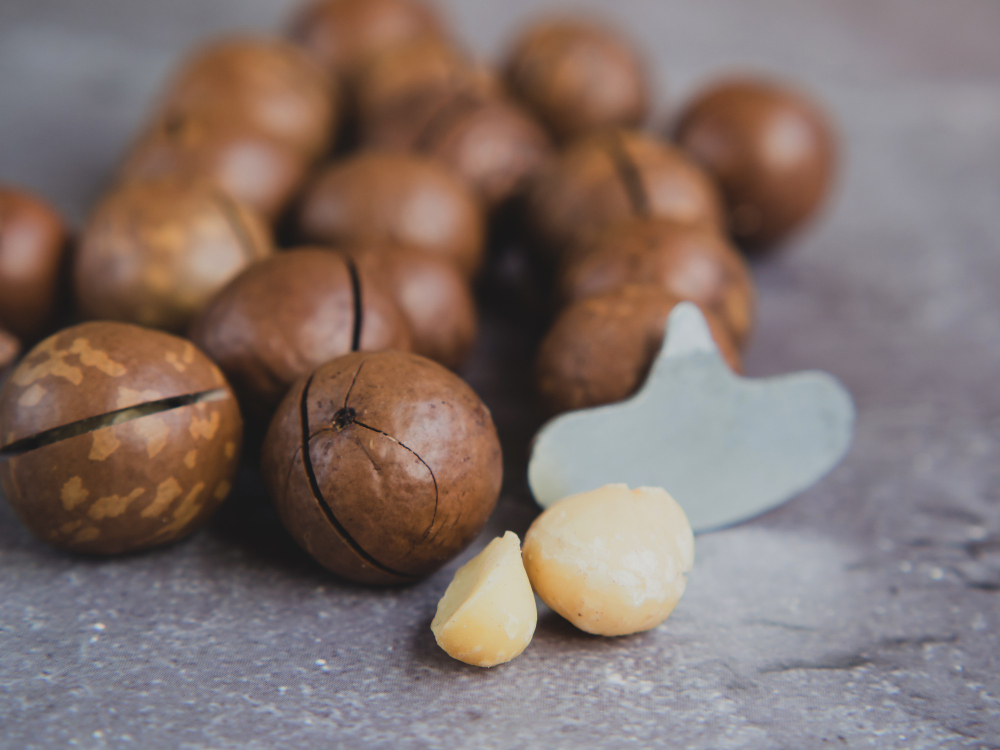
Macadamia nuts are a rich source of fat. Doses as low as 2.4 grams per kilogram of the dog’s weight have been found to affect muscle strength, with other symptoms such as vomiting, lethargy and fever. In rare cases of higher dosage, dogs may experience inflammation of the pancreas (pancreatitis).
5. Salt and sugar
Salt, sugar, and foods containing them can cause short-term and long-term adverse effects on dogs. Dogs do need sugar in the form of carbohydrates to be able to live and function well. However, it is advisable to feed them sugar through natural sources like fruits rather than sweet treats.
Salt and sugar can mess up the balance of good bacteria in a dog’s stomach, which can lead to explosive and sometimes bloody diarrhea.
6. Xylitol
Xylitol, an artificial sweetener and a sugar alcohol present in several edible products like yogurt, cream, baked goods, some nut butter, etc can have a devastating effect on dogs. Unlike humans, in cases of dogs, xylitol is more quickly absorbed into the bloodstream and may result in a potent release of insulin from the pancreas, which can be life-threatening.
7. Onion

Onions contain a toxic substance called N-propyl disulfide. This chemical is a sulfur compound that attaches to the oxygen molecules of a dog’s red blood cells, causing oxidative damage. This prevents the red blood cells from carrying oxygen properly. Every part of the cooked or uncooked onion is poisonous, including the leaves, flesh, skin, and even the juice.
8. Cherries

The pits, stems and leaves of the cherries contain, although in small quantities, cyanide. If consumed heavily and repeatedly, it may cause internal poisoning in dogs. Cherry pits are a major problem for dogs, as they can cause intestinal obstruction.
Now, your German Shepherd may have consumed some of these foods in the past and may have come out unaffected. However, a stroke of luck doesn’t save a life every single time.
What to do if my German Shepherd has consumed toxic food?
No matter how badly we try to keep our dogs shielded, sometimes, even the best of us can have a slip. That’s why it is important to be prepared. Consider taking the following steps depending on how mild or severe the symptoms are:
Dos
- Examine your dog and its symptoms very closely. Symptoms may include decreased coordination, drooling, seizures, tremors, nausea, abnormal heart rate, etc
- Try to limit your dog’s movement around the house, unless they’re having diarrhea
- Call the Animal Poison Control in your area and ask for help
- Call the vet and prepare for the next steps ASAP. If your dog is getting worse by the minute, rush them to the emergency room
Don’ts
- Don’t try to induce vomiting before getting a go-ahead from your vet
- Don’t try to self-medicate without getting a go-ahead from your vet
- Don’t ignore signs and symptoms of poisoning and do not ‘wait it out’
More on German Shepherd Allergies

- Most Common German Shepherd Allergies: What You Need to Know
- How to Help Your German Shepherd With Allergies?
- Ear Allergy in German Shepherds: Everything You Need to Know
- Chicken Allergy in German Shepherds: Everything You Need to Know
- German Shepherd Skin Allergies: Best Tips for Relief
- How to Stop Itching in German Shepherds? Effective Remedies Owners Use
- You may also like:
- Is Pet Insurance Worth It for Your German Shepherd Dog?
- Is Grain-Free Good for German Shepherds?
- Worst Dog Food for German Shepherds: Things to Avoid
- Best Dog Food for German Shepherds with Sensitive Stomach
- German Shepherd with Diarrhea: A Feeding Guide
- Dog Diarrhea: Simple and Effective Home Remedies That Dog Owners Use
- Constipated Dog: Causes and Easy Home Remedies
What to look out for while buying dog food for your German Shepherd
“Large breed dogs are more prone to musculoskeletal problems than smaller breeds, and so they often require large-breed dog food with different balances of certain nutrients to promote musculoskeletal health, especially as puppies.” (Source: AKC)
Selecting the right food for your German Shepherd is an investment. What you feed is what you get in terms of health, quality of life and lifespan. Here are 8 points to investigate and contemplate on before narrowing down on one.
1. First 5 ingredients
The first 5 ingredients make up 80-85% of the bag. Make sure the 1st five ingredients of the bag comprise of animal meat and organs (not by-products), healthy fats, complex carbs, vitamins and mineral sources. Stay away from the brands that contain meat by-products, corn and soy in the 1st 5 ingredients.
2. Guaranteed analysis
The guaranteed analysis refers to the macronutrient levels in the food. It gives buyers a picture of the product’s nutrient content. Crude protein, crude fat, crude fiber and moisture are required to be listed on the label but it may sometimes also include additional information like calcium, omega 3, and sodium content.
Quick fact: “German shepherd puppies have a higher risk of developing a crippling form of canine hip dysplasia… if they’re fed a dog food that contains too much calcium for their larger breed type.” (Source: Dogfoodadvisor.com)
Make sure that the bag of food you select for your GSD contains just the right amount of calcium.
3. Protein-to-fat ratio
Depending on the life stage that your GSD is at, your dog’s food must be able to match its protein and fat requirement. The AAFCO approves food that has a minimum of 22 percent protein for growth and reproduction stages and a minimum of 18 percent for adult dogs. according to the Journal for Nutrition.
According to the Journal for Nutrition, working dogs need more than 30 percent protein in their daily diet.
4. Nutritional adequacy
The nutritional Adequacy Statement on a bag of dog food indicates that the food is complete and balanced for a particular life stage, such as puppy, growth, reproduction, adult maintenance, senior, or a combination of these. It also states whether the food is intended for supplemental feeding or daily feeding.
5. Your dog’s activity level
Active and working dogs need more protein and higher amounts of fat as compared to homebodies. Examine your dog’s activity level and choose a brand that nourishes your GSD well.
6. Your dog’s life stage
A GSD puppy’s nutritional requirements are different from an adult GSD, which is vastly different from a senior GSD. Choose a brand and a variant that is customized for the life stage that your dog is in.
7. Your dog’s weight
If your German Shepherd is overweight and you need to reduce its calorie intake, consider choosing food that contains lean protein and fresh vegetables. Several brands manufacture food that is especially suited to the needs of an overweight dog.
8. Your dog’s allergies
It is not uncommon for German Shepherds to be born with certain allergies or develop them later in life. While picking a brand of dog food or transitioning your dog from one to the other, make sure to observe your dog’s skin, coat, body, poop, urine and behavior closely to monitor signs of allergies.
Final thoughts
With the ever-growing number of options stacking up on the shelves in pet stores every single day, filtering out the bad stuff can be overwhelming. However, if you just know where to look and what to see in a bag of food, consider your job done.
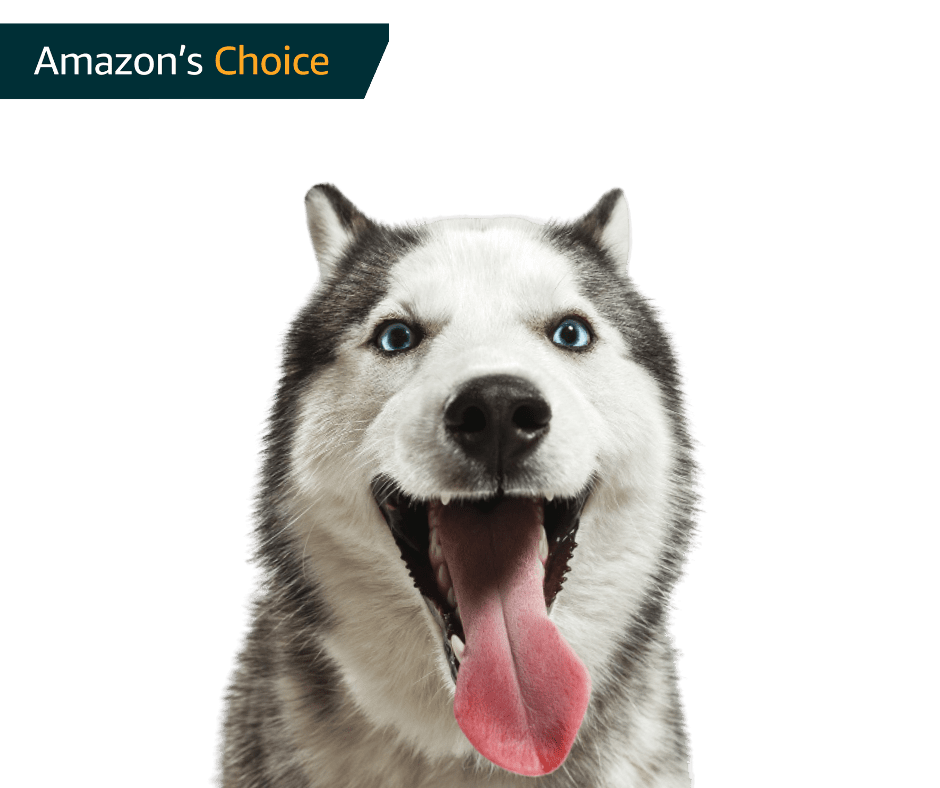
More posts on feeding your German Shepherds

Must read:
- The Best & Worst Dog Foods Ever – According to a 45-Year Veterinarian
- Worst Dog Food for German Shepherds
- Is Grain-Free Good for German Shepherds?
- How to Stop Food Aggression Towards People in German Shepherds?
Choosing the best dog food:
- The Best Food For German Shepherd Puppies
- Best Cheap Dog Food for German Shepherds (Dry and Wet Food)
- Best Dry Dog Food for Your German Shepherd Puppies: How to Choose?
- The Best Dog Food for a 12 Months German Shepherd
- What To Look For When Buying Dog Food for German Shepherds?
- Is Royal Canin German Shepherd Dog Food Any Good? Read This First
On feeding your German Shepherd:
- How Much Does It Cost to Feed a German Shepherd Puppy in the First Year?
- How Much Does an 8-Week-Old German Shepherd Puppy Eat in a Day? A Feeding Guide
- How Much Does a 3-Month-Old German Shepherd Dog Eat in a Day? A Feeding Guide
- How Much Does a 6-Month-Old German Shepherd Dog Eat in a Day? A Feeding Guide
- Can Dogs Eat Vanilla Ice Cream?
- 17 Human Foods That Are Safe For German Shepherds to Eat
- The Benefits of Feeding German Shepherds Raw Food
- How to Feed Your Dog Raw Food on a Budget?
- Is It Ok to Give Raw Meat to My German Shepherd Puppy?
For picky eaters:
